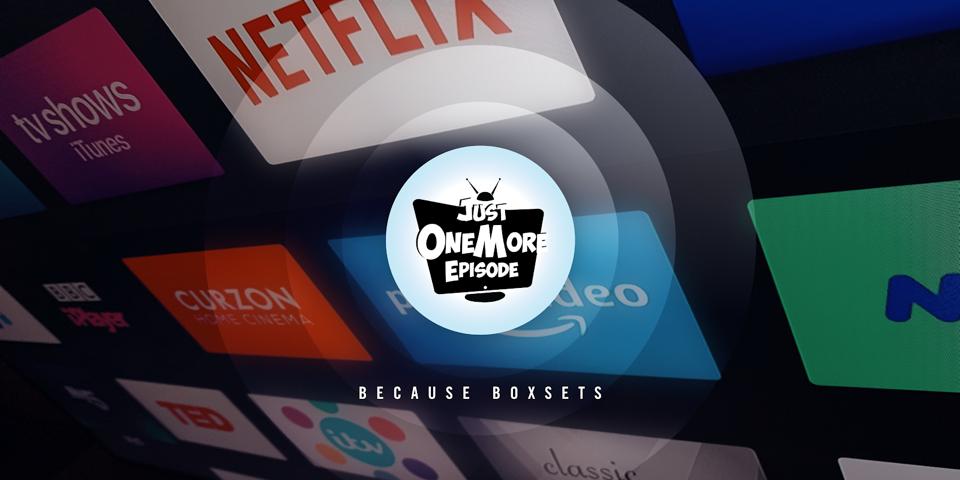This week, I’m returning to work after two weeks on
holiday. While being on vacation is
moderately preferable to sitting in an office, I’m counting my blessings that I’m
not going down some terrible coal mine or making thousands of flat whites as a
barista. Sitting and typing emails isn’t
really that taxing, so I’ve no need to dread my return to corporate life. But I’m sparing a thought for my friends that
have trained in medicine. I’ve heard
many of their tales of junior doctor shifts, seen them uprooted across the
country with each rotation and laughed and cried while reading Adam Kay’s This
Is Going To Hurt. Now the NHS is
being smashed and grabbed over as befits the run-up to any British election. On holiday in the US, my hotel TVs (in
between impeachment proceedings) were filled with vile ads for various niche
drugs and their side effects. Which has
all got me thinking about hospitals. But, as we can’t take anything seriously here,
we’re hitting up a fantastic comedy whose two seasons (starting back in 2004)
have always made me smile: Green
Wing.
I had planned to go through each of the main characters, but
Wikipedia lists 13 of these, plus some key recurring roles, and I’m running out
of time before Seven Worlds, One Planet. So, instead, I’m going to pick out my
favourites from the madcap population that staffs East Hampton Hospital.
Harriet Schulenberg
Played by Olivia Colman (who’s now
sporting the crown in The, er, Crown)
Harriet is a bastion of the HR department whose every day of attendance is a miracle
in spite of her four kids and unhappy marriage, to say nothing of her actual
performance when finally seated at her desk.
Colman perfectly captures the chaos that can ensue when lots of small,
dirty children are involved: cardigans constantly slipping off, school projects
being crafted while ferrying offspring around extra-curriculars. I never cease to be impressed by the parents
in my office who, after each day, raise little people in their homes while I
just lie on the sofa, only to be kept up by these same precious mites when they
have the sniffles or start vomiting. Yet
they often manage to come in the next day fully composed. Harriet is so cleverly observed and amplified
that she has a universal quality in reflecting the edge of madness where
working parents exist. It’s not all bad
though: you can leave the office at any time just by saying you have to pick
your kids up. I often pop off, claiming
to be fetching children from somewhere, and nobody is allowed to question me. But, secretly, I don’t have any offspring.
Sue White
East Hampton’s staff liaison officer demonstrates demonic
behaviour in every scene, whether alone in her office up to no good, or
torturing the staff whose concerns she is meant to soothe. This was another occasion when I fell in love
with Michelle Gomez
(last seen in Chilling Adventures Of Sabrina)
who clearly enjoys the madcap glint in her eye she is able to maintain
throughout. Of note is her ability to
prevent all protest at her treatment of others, relying on British politeness
and surprise at ill-behaviour in a way that’s similar to my hero, Jill Tyrell,
in Nighty Night.
Guy Secretan
Stephen
Mangan now performs 99% of all TV advert voiceover work, but his performance
of the supercilious anaesthesiologist, always second fiddle to the much cooler
Mac, made him a household favourite.
Every workplace needs a gaffman, and Dr Guy Secretan’s belief in his own
half-Swiss importance can outgaff the gaffiest of them.
Caroline Todd
The newcomer through whom we navigate the sketch-show-esque
world of East Hampton, Caroline is our everyman at an asylum full of medical
professionals. While she’s as neurotic
as the rest of us, her foibles pale in comparison to those around her. You can’t help but love Tamsin Greig throughout,
even when she is having a strong adverse reaction to Angela Hunter. There’s a GIF of Caroline typing wildly that
I still use in work presentations most weeks, so she’s a gift (a GIF-t – get it?)
that keeps on giving.
Angela Hunter
Sarah
Alexander again nearly flies under the radar here (a perennially
underappreciated national treasure of comedy acting), but this character is
always one of the most enjoyable.
Excessively cheery and seemingly perfect, her colleagues’ response to
her is always reassuring, including Caroline Todd’s irrational dislike.
Joanna Clore
I could go through the whole of the HR department here, but
my final mention is for its head, played by Pippa Haywood. A woman of a certain age, she doesn’t care
what others might make of her brusque attitude and major mood swings. You can’t beat an angry senior woman at
work. Senior men rightly cower from them
leaving everyone else the chance to get on with stuff.
There are too many more to mention. Even the deliciously named Martin Dear hasn’t
made my list (despite his name encapsulating everything about his character
perfectly). I’ll stop once to mention
Alan Statham though. I have to confess
that he was my least favourite and I never looked forward to his scenes coming
around. He is just so snivelling and
conniving that my skin crawls every time I even think of him. But one out of 13 ain’t bad, especially as
there’s a great deal else to love about this sketch show-cum-sitcom-cum-comedy
drama-cum-hospital show. And that’s a
lot of cums in this genre-splicing format.
Green Wing will forever remain welcome in our homes – we just need a
political party to pledge in their manifesto that they are committed to
bringing it back (and not shafting the actual NHS).


























